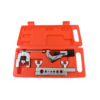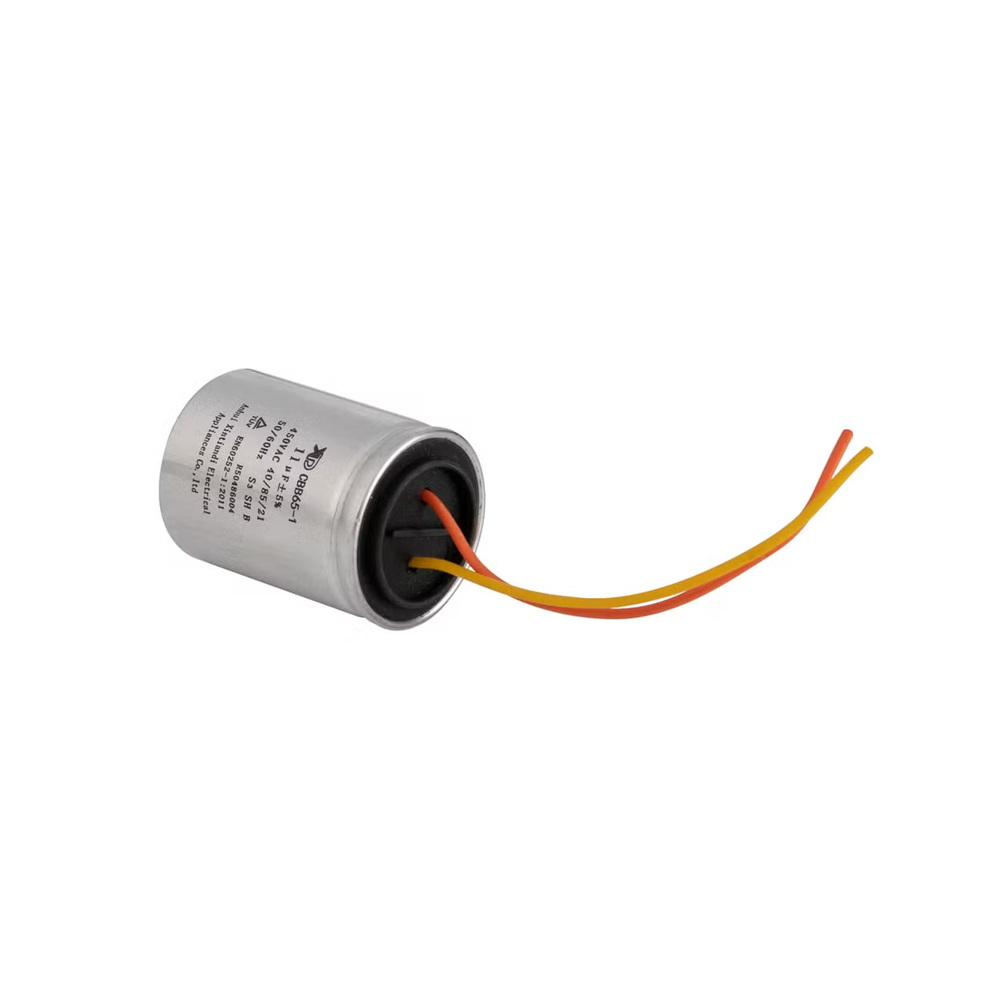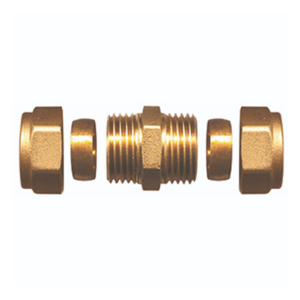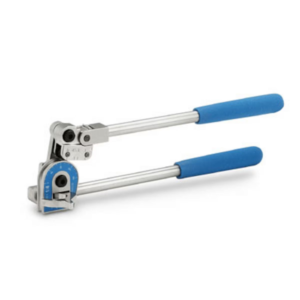🚚 Fast Delivery | ⭐ Best Quality | 📞 24/7 Support
+971 2 552 3918
info@coolwaybm.com
- Power Tools & Machinery
- Fire and Safety Equipement
Fire and Safety Equipement
- Adhesives
- Plumbing & Sanitary
- Packing Materials
Packing Materials
- Abrasives
- Carpentry
- Welding Accessories
Welding Accessories
- Fasteners
- Lock & Furniture Accessories
Lock & Furniture Accessories
- A/C Refrigeration
- Electrical
Electrical
د.إ1.00


د.إ1.00
You can add any HTML here
We suggest you to create a Saved Template in Dashboard -> Templates -> Saved Templates and use it by switching content type above to Saved template.
Overview of Capacitors
A capacitor is a passive electronic component that stores and releases electrical energy in a circuit. It consists of two conductive plates separated by an insulating material (called a dielectric). Capacitors play a critical role in regulating voltage, filtering signals, and providing smooth power in a wide range of electrical applications. They are essential for maintaining the stability and efficiency of electronic systems, from consumer electronics to industrial machinery.
Capacitors come in different types, sizes, and voltage ratings, each designed for specific uses. Whether in power supply systems, HVAC units, motors, or electronic devices, capacitors are integral in optimizing performance, improving energy efficiency, and enhancing overall system reliability.
Types of Capacitors
- Ceramic Capacitors: These are one of the most common and versatile types of capacitors, known for their small size and reliability. Ceramic capacitors are typically used in low-voltage circuits, signal filtering, and decoupling applications. They are inexpensive and come in a variety of capacitance values.
- Electrolytic Capacitors: Known for their large capacitance values, electrolytic capacitors are often used in power supply circuits, filtering, and energy storage applications. These capacitors are polarized, meaning they must be installed with correct polarity. They are common in applications requiring higher capacitance, such as in audio amplifiers, power converters, and HVAC systems.
- Tantalum Capacitors: Tantalum capacitors offer high capacitance in a compact size and are used in applications requiring stable performance over time, such as in consumer electronics, computers, and communication devices. They are highly reliable but can be more expensive than other types.
- Film Capacitors: These capacitors use a thin plastic film as the dielectric and are known for their durability, stability, and wide range of capacitance values. Film capacitors are commonly used in power electronics, audio circuits, and in applications requiring low leakage current.
Applications of Capacitors
Capacitors are used across various industries and applications to improve system performance:
- Power Supply Systems: In power supply circuits, capacitors smooth out fluctuations in voltage, providing stable power to the system and preventing electrical noise. They also help in power factor correction, improving the efficiency of power distribution.
- HVAC Units: Capacitors are used in air conditioning and refrigeration systems to start and run motors efficiently. They provide the necessary electrical boost to start the compressor or fan motor and regulate the motor’s voltage for optimal operation.
- Motors: In electric motors, capacitors help enhance performance by improving starting torque, reducing energy consumption, and smoothing electrical current. Capacitors are especially used in single-phase induction motors found in appliances and machinery.
- Electronics: Capacitors are integral to most electronic circuits, where they are used for signal filtering, voltage regulation, and energy storage. They are present in everything from power adapters to smartphones and computers, ensuring smooth operation and protecting components from electrical surges.
- Audio Systems: In audio amplifiers, capacitors help filter and smooth power to deliver clean, stable audio signals, preventing distortion and improving sound quality.
In summary, capacitors are vital components in modern electrical and electronic systems, playing a crucial role in energy storage, voltage regulation, and power smoothing. They ensure efficient operation in a wide range of applications, from household appliances to industrial machinery, improving overall performance, energy efficiency, and system longevity.
There is £4.99 charge for delivery under £50 Orders. Additional charges will be imposed by our couriers for delivery to remote area, a surcharge may be levied to cover carriage to these areas.
CAPACITOR’S
د.إ1.00
Short Description
- Capacitors: Electronic components that store and release electrical energy, used to regulate voltage, smooth power supply, and provide energy in electrical circuits.
- Types: Includes ceramic, electrolytic, tantalum, and film capacitors, each with specific characteristics and applications.
- Applications: Widely used in power supply systems, HVAC units, motors, and electronic devices to enhance performance and energy efficiency.
Overview of Capacitors
A capacitor is a passive electronic component that stores and releases electrical energy in a circuit. It consists of two conductive plates separated by an insulating material (called a dielectric). Capacitors play a critical role in regulating voltage, filtering signals, and providing smooth power in a wide range of electrical applications. They are essential for maintaining the stability and efficiency of electronic systems, from consumer electronics to industrial machinery.
Capacitors come in different types, sizes, and voltage ratings, each designed for specific uses. Whether in power supply systems, HVAC units, motors, or electronic devices, capacitors are integral in optimizing performance, improving energy efficiency, and enhancing overall system reliability.
Types of Capacitors
- Ceramic Capacitors: These are one of the most common and versatile types of capacitors, known for their small size and reliability. Ceramic capacitors are typically used in low-voltage circuits, signal filtering, and decoupling applications. They are inexpensive and come in a variety of capacitance values.
- Electrolytic Capacitors: Known for their large capacitance values, electrolytic capacitors are often used in power supply circuits, filtering, and energy storage applications. These capacitors are polarized, meaning they must be installed with correct polarity. They are common in applications requiring higher capacitance, such as in audio amplifiers, power converters, and HVAC systems.
- Tantalum Capacitors: Tantalum capacitors offer high capacitance in a compact size and are used in applications requiring stable performance over time, such as in consumer electronics, computers, and communication devices. They are highly reliable but can be more expensive than other types.
- Film Capacitors: These capacitors use a thin plastic film as the dielectric and are known for their durability, stability, and wide range of capacitance values. Film capacitors are commonly used in power electronics, audio circuits, and in applications requiring low leakage current.
Applications of Capacitors
Capacitors are used across various industries and applications to improve system performance:
- Power Supply Systems: In power supply circuits, capacitors smooth out fluctuations in voltage, providing stable power to the system and preventing electrical noise. They also help in power factor correction, improving the efficiency of power distribution.
- HVAC Units: Capacitors are used in air conditioning and refrigeration systems to start and run motors efficiently. They provide the necessary electrical boost to start the compressor or fan motor and regulate the motor’s voltage for optimal operation.
- Motors: In electric motors, capacitors help enhance performance by improving starting torque, reducing energy consumption, and smoothing electrical current. Capacitors are especially used in single-phase induction motors found in appliances and machinery.
- Electronics: Capacitors are integral to most electronic circuits, where they are used for signal filtering, voltage regulation, and energy storage. They are present in everything from power adapters to smartphones and computers, ensuring smooth operation and protecting components from electrical surges.
- Audio Systems: In audio amplifiers, capacitors help filter and smooth power to deliver clean, stable audio signals, preventing distortion and improving sound quality.
In summary, capacitors are vital components in modern electrical and electronic systems, playing a crucial role in energy storage, voltage regulation, and power smoothing. They ensure efficient operation in a wide range of applications, from household appliances to industrial machinery, improving overall performance, energy efficiency, and system longevity.
There is £4.99 charge for delivery under £50 Orders. Additional charges will be imposed by our couriers for delivery to remote area, a surcharge may be levied to cover carriage to these areas.
Reviews
There are no reviews yet.
Buy more save more!
Buy from 2 to 4 items and get 10% OFF
on each productBuy from 5 to 8 items and get 15% OFF
on each product- Free shipping on all orders above 50,00
- No hassle returns, 30 days return
- Next day delivery within your country










Reviews
There are no reviews yet.